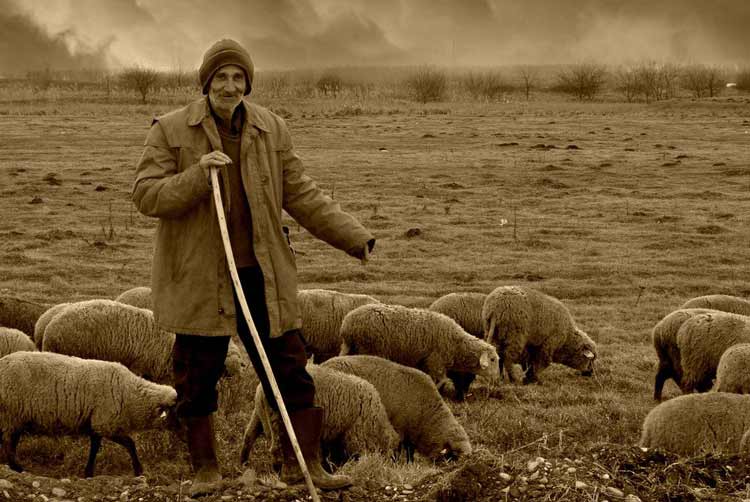When He saw the crowds, He had compassion for them, because they were harassed and helpless, like sheep without a shepherd.
Matthew 9:36 (ESV)
W. Philip Keller wrote several classic books, including A Shepherd Looks at Psalm 23. Phillip paints a poignant word-picture of a shepherd and his flock because he actually was a shepherd for a number of years. He had a true picture of the intelligence, simplicity, and vulnerability of sheep.
There is an Old English shepherding term for a sheep that has turned over on its back and can’t get back up again. A sheep in this position is called a cast sheep. If a sheep lies down, even on a flat place, the thick wool may cause the sheep to roll over too far, becoming stuck in a cast position. Sheep may get into blackberry brambles for munching or sidle up next to a barbed wire fence to rub. In either case, the wool can get caught and when the sheep tries to escape, it can roll over in the struggle.
When a sheep is overturned, all it can do is lie on its back, with its feet flaying frantically in the air. Cast sheep become distressed and die within a short period of time if they are not rolled back into an upright position. This is one of the reasons that a shepherd is always so attentive to his flock, counting them to see if they are all on their feet.
Much loving care is required to restore a cast sheep. First, a good shepherd reassures the sheep, massaging its legs to restore circulation. Then he turns it over gently, all the while reassuring it with his gentle touch and familiar voice. He then lifts the sheep up and holds it close while it regains its equilibrium. When the sheep is back on its feet, he continues to support it for a few minutes longer to ensure it is steady.
Jesus, our Good Shepherd, is moved with deep compassion when we get overturned into a vulnerable cast position. He tenderly gathers us up—reassures us with His gentle touch and familiar voice—lifts us up and holds us close—and restores our equilibrium—until we are steady once again!

